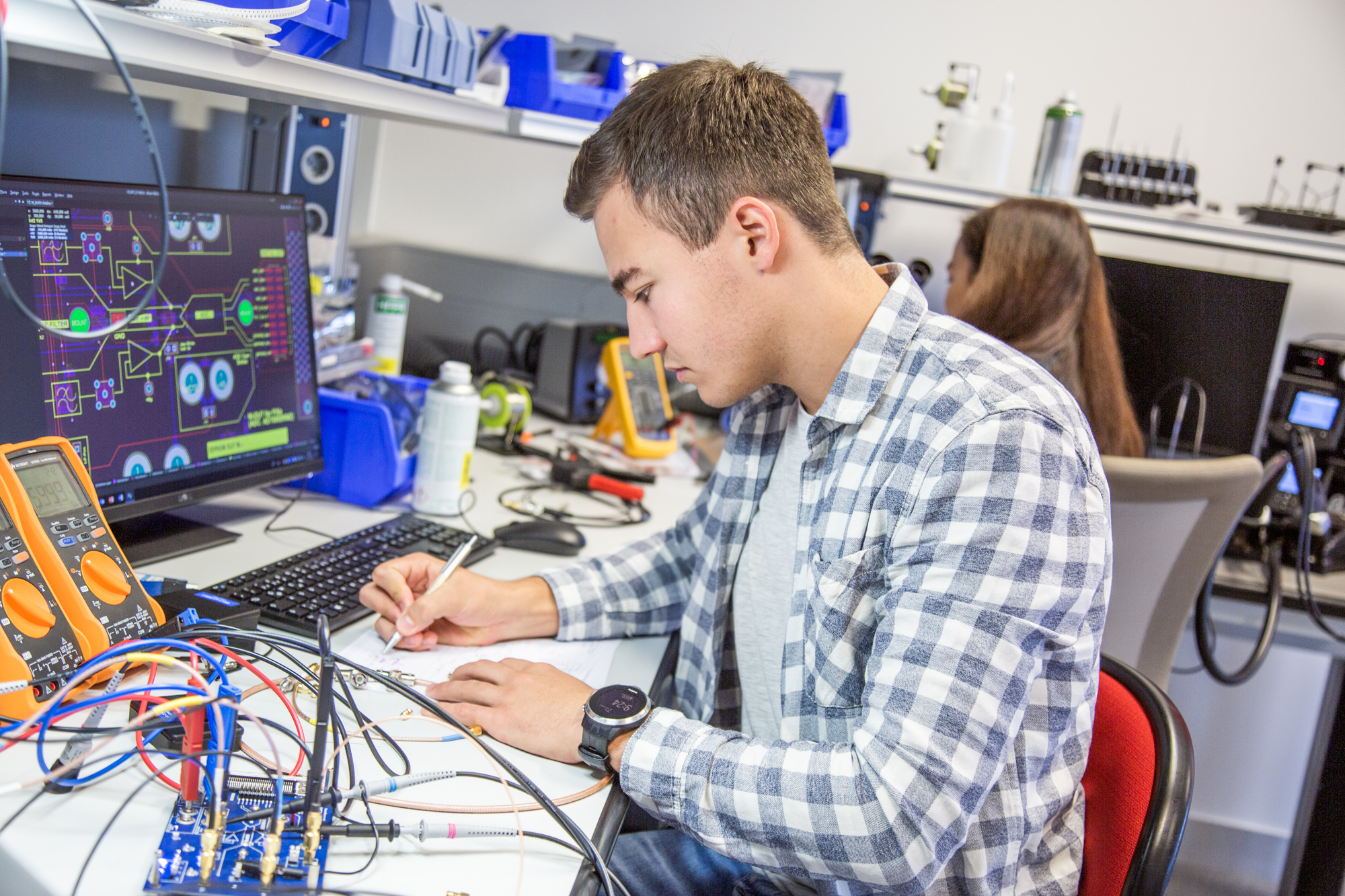
Ready, study, go!
Start your studies top informed.

Study your dream!
All information about studying.

Stay in touch!
Stay connected with the university.

Study with Purpose!
Discover our study programmes.

Educate with Purpose!
Lifelong learning and thinking ahead.

Research with Purpose!
Research from idea to application.

Better together!
As a university we create new opportunities.
Electronics and Computer Engineering
My Studies
Electronics and computer engineering are the key technologies of the future. Vehicles, production processes and energy networks, for example, are monitored by electronics and controlled by software. As an electronics engineer you will use your creativity to develop innovative electronic solutions to make our everyday lives easier. You will focus on circuit design, microcontroller programming, machine automation and human-machine interfaces based on telecommunications. Boundless enthusiasm, team spirit and the ability to devise solutions for complex problems: these are characteristics which particularly mark out electronics engineers. You will be operating in an international arena and working for Austrian and international high-tech firms.
What will I learn?
Electronics
The focus here is on developing electronic systems. Numerous lab tutorials and hands-on computer sessions will help you to understand concepts and theoretical connections and put them into practice. The basic principles will be explained to you using clear practical examples, giving you a deep intuitive understanding of electronics. You will design simple circuits to control LEDs as well as complex circuits for your own minicomputer and will make use of electronics to measure and process signals and transmit them via networks. You will carry out practical projects to develop an electronic system from the design stage through to manufacture and functionality testing. This will familiarise you with electronics and the measuring instruments required so later you will be able to get started on your career straight away.
Computer Engineering
You will learn how to program computers: from the first simple programs for computers and microcontrollers to object-oriented software design for complex electronic systems. In addition to programming, you will also learn about the structure of computers, microcontrollers and the necessary peripherals to perfectly adjust programs to system requirements. You will implement processes and calculations in programs in the course of practical assignments by programming robots, autonomous vehicles and communication systems. Software experts with practical experience will be on hand to help you. You will tackle tasks such as designing algorithms to control production plants and work on signal processing to link mobile phones and machinery. You’ll be able to put what you’ve learned into practice right away in our state-of-the-art labs, thereby gaining valuable practical experience.
